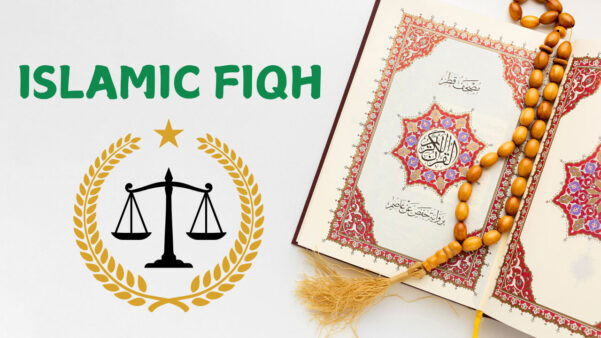The Contemporary Relevance of Qiyas and Ijtihad in Responding to Modern Social Challenges
##semicolon##
Qiyas##common.commaListSeparator## Ijtihad##common.commaListSeparator## Islamic##common.commaListSeparator## jurisprudence##common.commaListSeparator## Analogical deduction##common.commaListSeparator## Legal reasoning##common.commaListSeparator## Shariah##article.abstract##
In the evolving landscape of modern society, Islamic jurisprudence faces new and complex challenges that demand dynamic and thoughtful responses. Two foundational tools within Islamic legal theory—Qiyas (analogical deduction) and Ijtihad (independent legal reasoning)—serve as vital mechanisms for addressing contemporary issues while remaining grounded in the principles of Shariah. Qiyas allows scholars to extend established rulings to new situations by identifying shared underlying causes (‘illah), ensuring consistency and coherence within the legal framework. Meanwhile, Ijtihad empowers qualified jurists to engage in deeper reasoning to interpret texts in light of current realities, promoting relevance and adaptability in Islamic law. These methodologies are particularly crucial in addressing areas unanticipated by classical jurists, such as bioethics, digital technology, environmental concerns, and financial systems. By applying Qiyas and Ijtihad, scholars can offer reasoned solutions that reflect both the ethical foundations of Islam and the needs of a changing world. While there are debates about the limits and authority of these tools, their continued application supports a dynamic and responsive legal tradition. Thus, Qiyas and Ijtihad preserve the integrity of Islamic jurisprudence and enable it to evolve in harmony with the demands of contemporary society.
##plugins.themes.default.displayStats.downloads##
##submission.citations##
1. Al Jathiyah 45: 18
2. Coulson, N. James and Shamsy, Ahmed El (2024, May 1). sharia. Encyclopedia Britannica. https://www.britannica.com/topic/sharia.
3. Mohammad Hashim Kamali, Shariah Law: An Introduction, One world Publications, United Kingdom, 2008, p.2.
4. JasserAuda, Maqelid al-Shar e Nahas, Philosophy of Islamic Laws: A Systems Approach, The International Institute of Islamic Thought, United Kingdom, 2008 p. 20.
5. Ibn Kathir, Abu al Fida Ismail bin Umar, Al Nihaya, Al-Bidaya wa'l-Nihaya (Tarikh ibn Kathir), Dar ul Ibn Kathir, Beirut, 2015, V. 1, pg.219.
6. Ibn e Manzoor, Abu Al Fadhl Muhammad ibn Mukarram ibn `Ali ibn Ahmad, Lisan ul Arab (جهد), Adab ul Hawza, 1984, V.3, pg.133.
7. Ibn Kathir, Abu al Fida Ismail bin Umar, Al Misbah ul Munir Fe Tadhib wa Tahqeeq, Dar-us Salam Publishers, 2018, V.1, pg. 144.
8. Tahir ul Qadri, Ijtihad; Meanings, Applications and Scope, Minhaj ul Quran Publications, Lahore, 2007, pg. 21.
9. Britannica, T. Editors of Encyclopedia (2018, April 11). ijtihad. Encyclopedia Britannica. https://www.britannica.com/topic/ijtihad.
10. Al Ankabut 29: 69
11. Al Nisa 4: 83
12. Abu Dawood, Suleman Ibn al Ash’ath, Sunan Abi Dawood, The Book of office of Judge, Chapter: Struggling for an opinion when passing judgement, hadith no. 3592.
13. Muslim, Abul Husain Muslim ibn Al-Hajjaj Al-Qushayri An-Nishapuri, Sahih Muslim, The Book of judicial decisions, Chapter: The reward of the judge if he strives to reach a decision, whether he gets it right or wrong, hadith no. 1716.
14. Ahmed Akgunduz, Islamic Law in Theory and Practice; Introduction to Islamic Law. The Islamic University of Applied Sciences Press and Publications (IUR), Rotterdam, Netherlands, 2010, pg.141.
15. Mohammad Hashim Kamali, Principles of Islamic Jurisprudence, Ilmiah Publishers, Kuala Lumpur, 2000, pg.35.
16. Niazi, Imran Ahsan Khan, Islamic Jurisprudence (Ushul al-Fiqh), The Other Press, New-York City, 2003. P. 214.
17. Muhammad 47: 10
18. Saad 38: 28
19. Hallaq, Wael, An introduction to Islamic Law, Cambridge University Press, Cambridge, UK, 2009, pg. 22-23.
20. Rahman, Javed, The international seminar on Shariah law. Pakistan: Islamic Publication, October 1979.
21. Ibid.
22. Alwani, Taha Jabir Ijtihad, International Institute of Islamic Thought, Herndon, Virginia, United States of America, 1993, pg.24.
23. Ibid.
24. Hanif Hassan, Revisiting Dar ul Islam (Land of Islam) and Dar ul Harb (Land of War), Rajaratnam School of International Studies, NTU, South Spine, Singapore, 2007, pg.2.
25. Ibn Qayyim al-Jawziyyah, Al-Turuq al-Hukmiyah fi al-Siyasah al-Shar`iyah, (ed. Muhammad Jamil Ghazi), Dar al-Madani, Cairo, pg. 2.
26. Tahir ul Qadri, Ijtihad; Meaning, Applications and Scope, pg. 45.

##submission.downloads##
##submissions.published##
##issue.issue##
##section.section##
##submission.license##
##submission.copyrightStatement##
##submission.license.cc.by-nc4.footer##Authors retain the copyright of their work. All articles in Scholar Insight Journal are published under the terms of the Creative Commons Attribution 4.0 International License (CC BY 4.0).
This license permits anyone to read, download, copy, distribute, print, search, or link to the full texts of the articles, and to use them for any other lawful purpose, without asking prior permission from the author(s) or the publisher, provided proper attribution is given to the original work.




